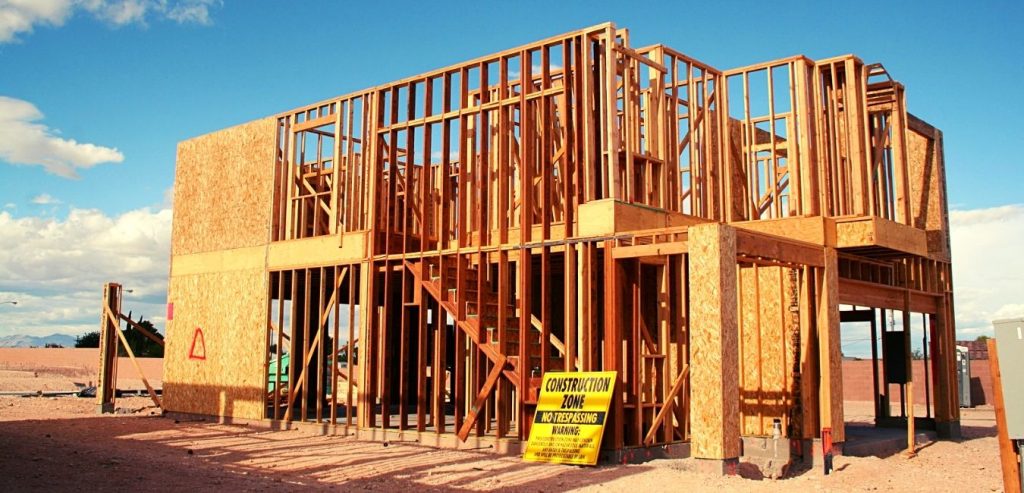In the dynamic world of construction, precision and efficiency are key. This is where takeoff services come into play, helping to streamline the process of estimating and planning materials, costs, and labour. Let’s dive into the specifics of lumber, construction, and piping takeoff services and why they’re indispensable to modern construction projects.
Understanding Lumber Takeoff Services
What is Lumber Takeoff?
Lumber Takeoff Services is the process of calculating the quantity and types of lumber required for a construction project. This detailed assessment helps contractors understand exactly what materials they need, preventing costly overordering or underordering.
Benefits of Lumber Takeoff Services
Utilizing lumber takeoff services offers numerous benefits. It ensures accurate material estimation, helps in budgeting, reduces waste, and improves overall project efficiency. By knowing precisely what you need, you can avoid delays and keep your project on track.
Key Components of Lumber Takeoff
Lumber takeoff includes several key components:
Material Identification: Listing all types and sizes of lumber needed.
Quantity Calculation: Determining the amount of each type of lumber.
Cost Estimation: Projecting the total cost based on current market prices.
Steps Involved in Lumber Takeoff
Initial Project Review
The first step is a thorough review of the project plans and specifications. This involves understanding the scope and requirements to ensure nothing is overlooked.
Detailed Material List Creation
Next, a comprehensive list of all required lumber is created. This list includes dimensions, quantities, and any special requirements.
Cost Estimation and Budgeting
Finally, the costs are estimated based on the material list and current prices. This helps in setting a realistic budget and ensuring the project remains financially viable.
Importance of Accuracy in Lumber Takeoff
Impact on Project Timeline
Accurate lumber takeoff directly affects the project timeline. Incorrect estimates can lead to delays, either from ordering more materials or waiting for additional supplies.
Financial Implications
Financially, accuracy is crucial. Overestimating can inflate the budget unnecessarily, while underestimating can cause costly project interruptions.
Avoiding Material Shortages and Overages
Proper takeoff ensures that the right amount of material is available when needed, avoiding both shortages and excess inventory.
Tools and Software for Lumber Takeoff
Popular Software Options
Several software options are available for lumber takeoff, such as PlanSwift, Bluebeam, and Esticom. These tools streamline the process and enhance accuracy.
Advantages of Using Software Over Manual Methods
Software solutions offer greater accuracy, speed, and efficiency compared to manual methods. They can quickly calculate quantities, update prices, and generate reports.
Features to Look For in Takeoff Software
When choosing takeoff software, look for features like ease of use, integration capabilities, accuracy, and comprehensive reporting functions.
Construction Takeoff Services: An Overview
Definition and Scope
Construction takeoff services encompass the detailed estimation of all materials and costs required for a construction project. This includes everything from lumber and concrete to plumbing and electrical components.
Types of Construction Takeoff Services
Construction takeoff can be categorized into several types:
Architectural Takeoff: Focuses on materials related to the architectural aspects, such as walls, floors, and roofs.
Structural Takeoff: This involves estimating materials for the structural framework, including beams and columns.
MEP Takeoff: Covers mechanical, electrical, and plumbing components.
Role in Project Planning and Execution
Takeoff services play a crucial role in planning and executing construction projects by ensuring accurate material estimation, budgeting, and scheduling.
Detailed Breakdown of Construction Takeoff
Architectural Takeoff
Architectural takeoff involves a detailed estimation of all materials related to the architectural design of a project. This includes finishes, fixtures, and other elements that define the building’s appearance and functionality.
Structural Takeoff
Structural takeoff focuses on the core framework of the building. This includes beams, columns, and other structural elements that provide support and stability.
MEP (Mechanical, Electrical, Plumbing) Takeoff
MEP takeoff involves estimating the materials and costs for mechanical, electrical, and plumbing systems. This is critical for ensuring that all these systems are integrated smoothly into the construction project.
Steps in the Construction Takeoff Process
Project Blueprint Analysis
The first step is analyzing the project blueprints to understand the full scope of work and identify all material requirements.
Quantity Surveying
Next, a quantity surveyor calculates the precise amounts of each material needed, ensuring nothing is missed.
Pricing and Estimation
Finally, the costs are estimated based on the material quantities and current market prices, helping to set a budget and plan for expenditures.
Benefits of Professional Construction Takeoff Services
Enhanced Accuracy
Professional takeoff services provide enhanced accuracy, ensuring that all estimates are as precise as possible, which reduces the risk of errors.
Time Efficiency
These services save significant time by quickly generating detailed material lists and cost estimates, allowing for faster project commencement.
Cost Savings
Accurate takeoff services can lead to substantial cost savings by avoiding overordering and reducing waste, ensuring that budgets are not exceeded.
Piping Estimating Services: A Crucial Component
What Are Piping Estimating Services?
Piping estimating services involve calculating the materials, labor, and costs associated with installing piping systems in a construction project.
Importance in Construction Projects
These services are essential for projects with extensive plumbing and HVAC systems, ensuring that all piping components are accurately estimated and budgeted.
Key Aspects of Piping Estimation
Key aspects include:
Material Specification: Identifying the types and grades of piping required.
Labor Cost Estimation: Calculating the labor required for installation.
Contingency Planning: Accounting for potential risks and unexpected costs.
Steps in the Piping Estimating Process
Design Plan Review
The process begins with a thorough review of the design plans to understand the piping layout and specifications.
Material and Labor Cost Estimation
Next, the materials and labor costs are estimated, considering the complexity of the installation and the quality of the materials.
Risk Assessment
Finally, a risk assessment is conducted to identify potential challenges and incorporate contingency plans.
Software for Piping Estimation
Leading Piping Estimation Tools
Popular tools for piping estimation include FastPIPE, QuickPen, and QuoteSoft. These tools offer precise calculations and detailed reporting features.
Benefits of Digital Estimation
Digital estimation enhances accuracy, reduces manual errors, and saves time. It also allows for easy adjustments and updates as project requirements change.
Integration with Other Construction Management Tools
Effective piping estimation software can integrate with other construction management tools, providing a seamless workflow and comprehensive project management.
Challenges in Takeoff and Estimating Services
Common Pitfalls and How to Avoid Them
Common pitfalls include inaccurate measurements, overlooking material requirements, and underestimating costs. These can be avoided by thorough reviews and double-checking estimates.
Dealing with Uncertainties
Dealing with uncertainties involves incorporating contingencies and regularly updating estimates based on market trends and project progress.
Ensuring Compliance with Regulations
Compliance with local building codes and regulations is crucial. Ensuring that all estimates and plans meet these requirements is essential for project approval and success.
Future Trends in Takeoff and Estimating Services
Technological Advancements
Technological advancements, such as AI and machine learning, are transforming takeoff and estimating services, providing greater accuracy and efficiency.
Increasing Adoption of AI and Machine Learning
AI and machine learning can analyze vast amounts of data quickly, improving the accuracy of estimates and identifying potential issues before they arise.
Green Building and Sustainable Practices
There is a growing focus on green building and sustainable practices. Estimating services are increasingly incorporating eco-friendly materials and practices into their calculations.
Conclusion
Accurate takeoff and estimating services are vital for the success of any construction project. They ensure that all materials and costs are accounted for, helping to keep projects on time and within budget. By leveraging professional services and advanced software, construction companies can enhance efficiency, reduce waste, and achieve better outcomes.
FAQs
What is the difference between takeoff and estimating?
Takeoff involves measuring and listing the quantities of materials needed for a project while estimating includes calculating the costs associated with these materials and labor.
How does takeoff software improve accuracy?
Takeoff software improves accuracy by automating calculations, reducing human errors, and allowing for quick updates as project details change.
Can small projects benefit from professional takeoff services?
Yes, small projects can benefit significantly from professional takeoff services by ensuring accurate material estimates and cost control, leading to smoother project execution.
What should I look for when choosing a takeoff service provider?
When choosing a takeoff service provider, look for experience, accuracy, reliability, and the use of advanced software tools.
How are takeoff services priced?
Takeoff services are typically priced based on the complexity and scope of the project, including factors like the size of the project, the types of materials involved, and the level of detail required.


